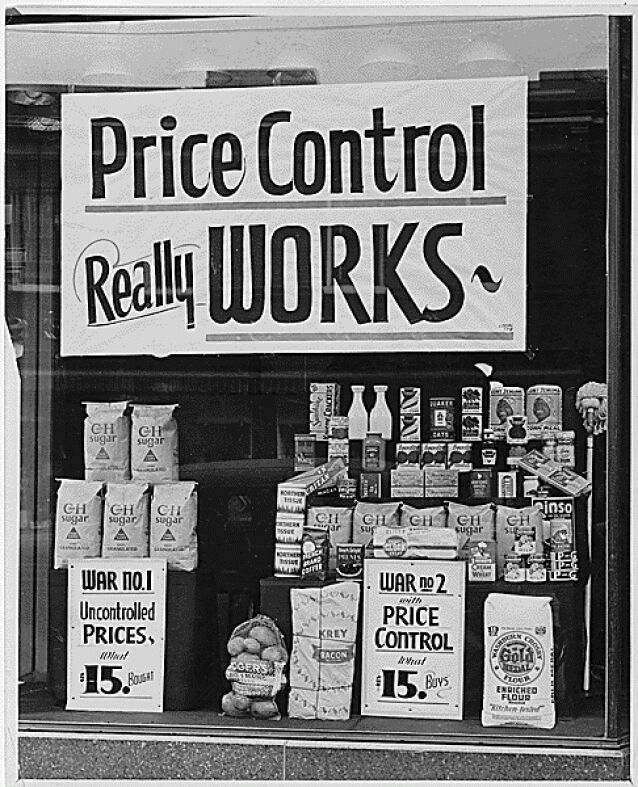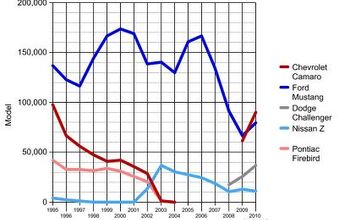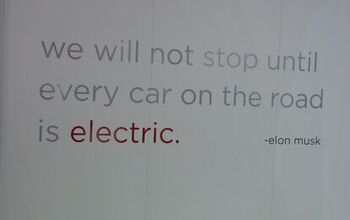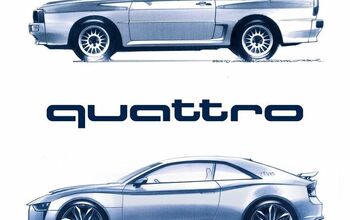Quote Of The Day: Price Wars Edition
Is the auto industry headed for a price war? Hyundai Motor USA CEO John Krafcik seems to think so, telling Reuters
I think we can officially say that a price war broke out in the industry. There is apparently a lot of pressure to deliver sales results. I would call this a step backward for the industry. This is short-term thinking in a long-term process that hurts manufacturers and consumers.
Krafcik says GM kicked off the rush for increased volume by cutting prices in January, and that Toyota (which has increased its incentives by 37.5% since last January, according to TrueCar) “quickly” responded by matching The General’s price cuts. Honda, Nissan and Chrysler have also kept their incentives high, and Chrysler has told Automotive News [sub] that it plans on increasing sales by 45% this year. Says Krafcik
We’ll see if others decide to follow. It’s certainly not in our plan right now.
Krafcik has a point: though sales have recovered over the last year as the economy has come back from the depths of recession, industry-wide incentive spending is up 1.3% in the last 12 months. Rather than taking advantage of the economic recovery to bring incentives down and transaction prices up, automakers appear to be focused entirely on volume. That’s certainly the message GM has sent by announcing that it would no longer release its incentive data. And, as Krafcik points out, the industry has already suffered mightily from such short-term, unsustainable thinking… but not everyone shares his concern.
GM’s response: sales incentives are “targeted.”
Rick Scheidt, vice president of GM’s Chevrolet, argued that Chevrolet has become more strategic, offering few incentives on hot-selling models such as the Equinox and Cruze and higher ones on its Silverado pickup to match competitors.
“If you don’t participate, you aren’t going to be a big player,” said Scheidt. “Things are much more targeted now. I don’t think you can read that much into just one month.”
That critique was echoed by Edmunds’ head analyst Jessica Caldwell, who tells Reuters
GM was very aggressive in January, but I wouldn’t call it a price war. Toyota’s incentives were not extremely different from what it had been doing. In February, other brands may be more aggressive as a reaction (to GM).
What’s left out in this analysis is that Toyota was long a counterweight to the Detroit automakers’ incentive binges, maintaining strong price discipline without losing volume. That changed this time last year when, under attack from all sides during its recall scandal, the Japanese automaker began to boost incentives… and it has yet to take its foot off the accelerator. Toyota maintains that it “isn’t leading the industry,” but by relaxing its incentive discipline, it’s helping accelerate an incentive war.
It’s easy to forget how much overcapacity clean-up the industry went through in the last few years, but it’s foolishness to think overcapacity can’t come back. If manufacturers start cranking up production volumes and use incentives to clear unsold inventory, the industry could pull itself back out of its recovery. We hear reports from the NADA convention about the level of ego involved in sales teams of several large manufacturers… by one account, “it’s getting personal.” As good as low prices might be for consumers, let’s hope that sales bosses take their eye off volume long enough to make sure the entire industry doesn’t cut its own throat trying to outsell the next guy. The last thing America’s auto brands need now is to starve themselves of profit.
More by Edward Niedermeyer
Latest Car Reviews
Read moreLatest Product Reviews
Read moreRecent Comments
- Formula m How many Hyundai and Kia’s do not have the original engine block it left the factory with 10yrs prior?
- 1995 SC I will say that year 29 has been a little spendy on my car (Motor Mounts, Injectors and a Supercharger Service since it had to come off for the injectors, ABS Pump and the tool to cycle the valves to bleed the system, Front Calipers, rear pinion seal, transmission service with a new pan that has a drain, a gaggle of capacitors to fix the ride control module and a replacement amplifier for the stereo. Still needs an exhaust manifold gasket. The front end got serviced in year 28. On the plus side blank cassettes are increasingly easy to find so I have a solid collection of 90 minute playlists.
- MaintenanceCosts My own experiences with, well, maintenance costs:Chevy Bolt, ownership from new to 4.5 years, ~$400*Toyota Highlander Hybrid, ownership from 3.5 to 8 years, ~$2400BMW 335i Convertible, ownership from 11.5 to 13 years, ~$1200Acura Legend, ownership from 20 to 29 years, ~$11,500***Includes a new 12V battery and a set of wiper blades. In fairness, bigger bills for coolant and tire replacement are coming in year 5.**Includes replacement of all rubber parts, rebuild of entire suspension and steering system, and conversion of car to OEM 16" wheel set, among other things
- Jeff Tesla should not be allowed to call its system Full Self-Driving. Very dangerous and misleading.
- Slavuta America, the evil totalitarian police state


































Comments
Join the conversation
Price wars are just a race to the bottom. If I recall, Chrysler started it all with their "tent sales" in 1974, during a recession, and once it got out that if the OEM's were still making money with the price cuts, consumers rightly assume that's really what the products are worth, and when you start that sort of thing, all the "rich, Corinthian leather" in the world won't ever let you go back. So, here we are almost 37 years later and nothing's changed. By the way, I can't take my eyes off the photo used in this article, the main reason I haven't commented 'til now - the hand-lettered signs - that industry certainly did change - computer-manufactured and dumbed-down. I used to hand-letter signs all the time as part of my job back then and later, on the side for extra money.
So let me get this straight. The U.S. government illegally (certainly unconstitutionally) bailed out two major auto companies - GM and Chrysler - which had failed. They also shafted the bond holders. Then took over the bankruptcy and handed partial ownership to their cronies and friends in UAW places, as well as (in the case of Chrysler) handing partial ownership to FIAT of ITALY. All of this, instead of allowing the bankruptcy courts to actually do things in an orderly fashion AS WRITTEN BY LAW. So with all of this in mind, we can obviously see that making sure that the worst run companies can now cry for help because they are too big to fail, and receive it at the expense of the well run companies and taxpayers. Then the same government makes sure to try to "diss" a major competitor by making up sh!t about unintended acceleration to try to increase "their guy's" sales - and this is pretty well proven by the fact that another branch of the same government essentially came out a few days ago and said there were electronic gremlins in Toyotas. So now that we STILL have massive production capacity overages available for the market in the US (because Chrysler survived and GM didnt' get properly shrunk down due to interference with the free market and legal bankruptcy laws by a fascist government in Washington DC).... we now have DECENTLY RUN companies which have been PUTTING JOBS INTO THE UNITED STATES held at a massive disadvantage because GM especially desires more market share and are planning to buy it with "incentives" which are no doubt paid for by we taxpayers, ultimately. Wake me up when I no longer live in the Twilight Zone, 'mkay?